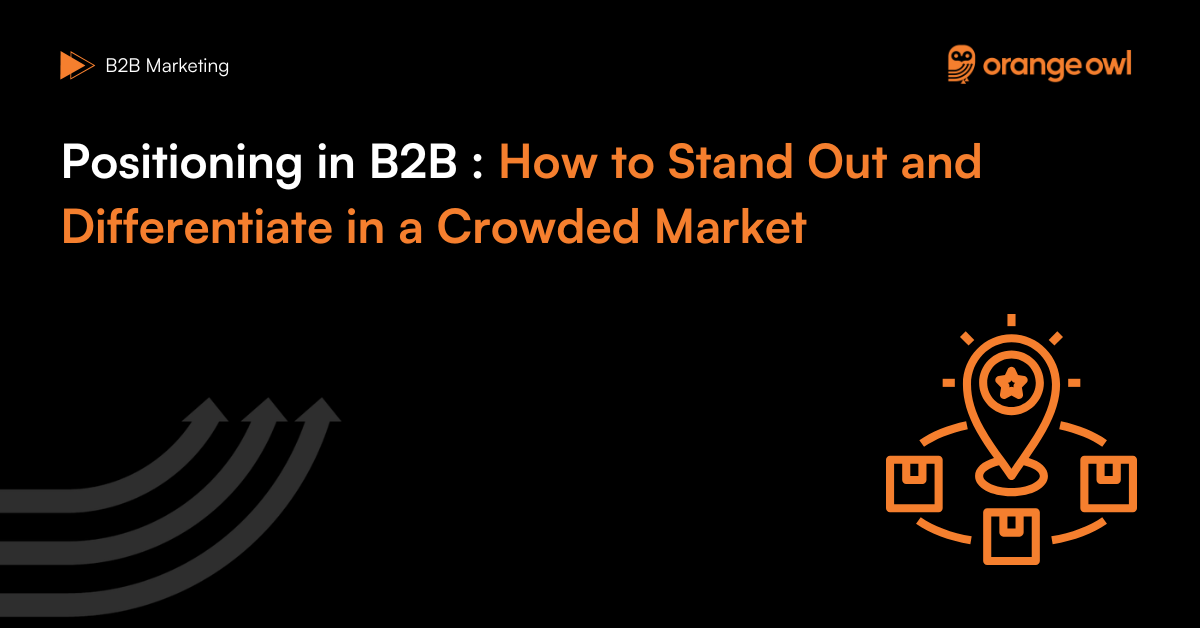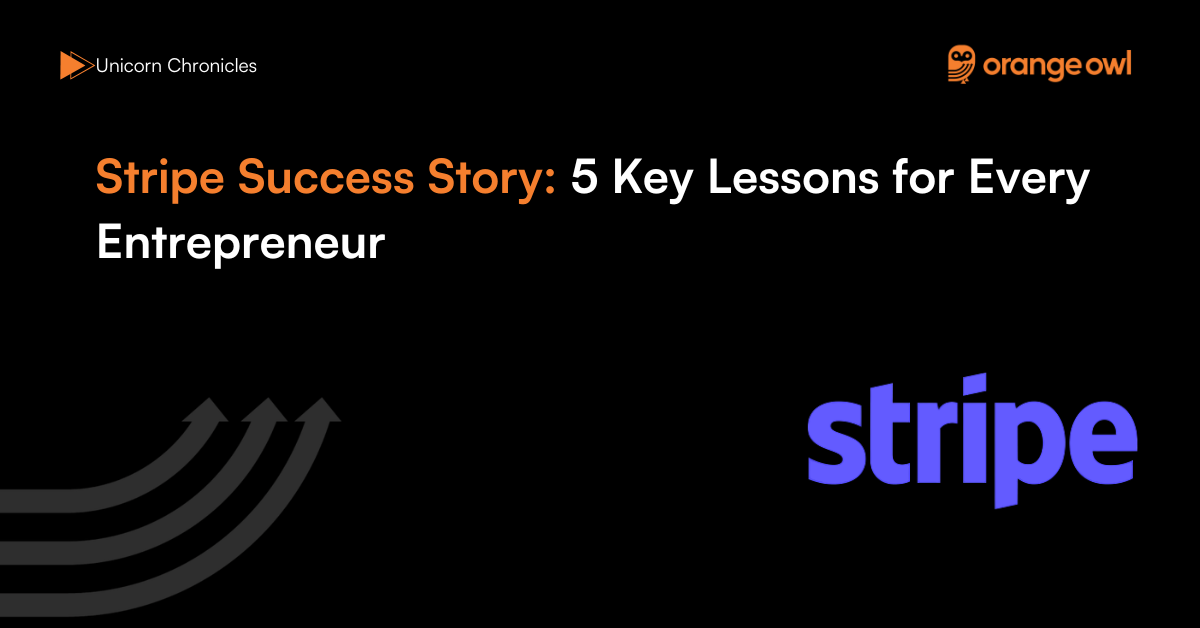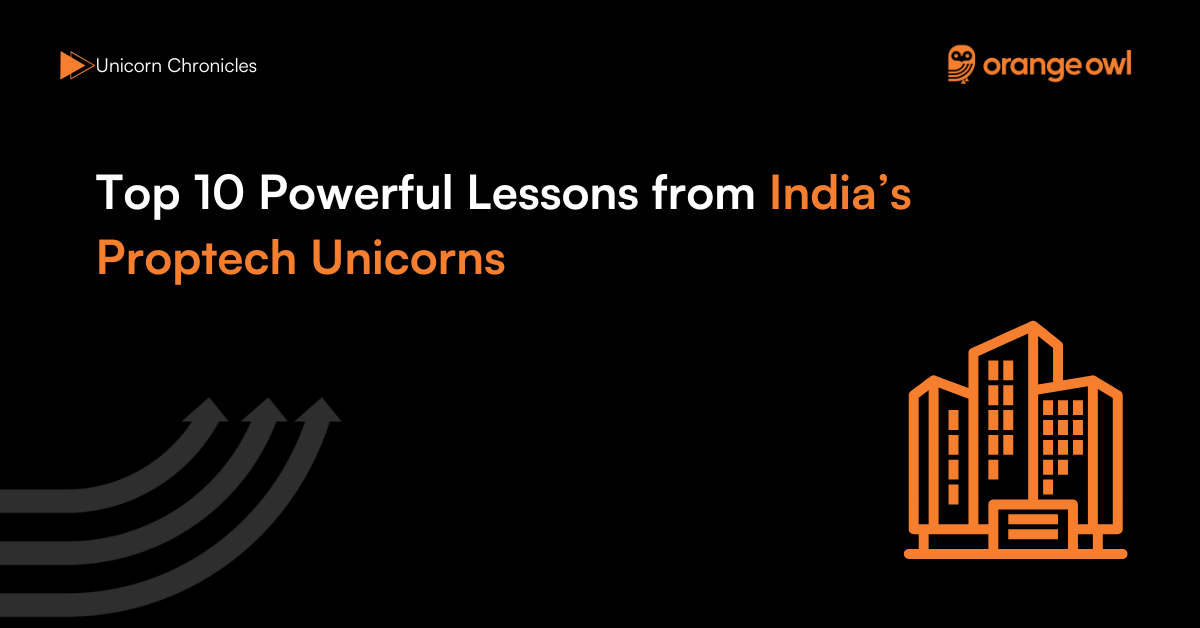Positioning in B2B : How to Stand Out and Differentiate in a Crowded Market
Vivek Goel
March 18, 2025

Table of Contents
Introduction
In today’s competitive B2B landscape, businesses struggle to stand out amid countless alternatives. As industries become increasingly saturated, differentiation is crucial to establish a strong brand identity and secure a competitive edge. Effective positioning ensures your brand resonates with the right audience, communicates unique value, and fosters long-term customer relationships. A strong brand positioning strategy is a must for any company that wants to succeed, and the data shows you why. Marq notes that revenue increases for brands that are displayed consistently range from 10% to 20% on average.This blog explores strategies to achieve differentiation in B2B marketing.
Understanding Positioning in B2B Marketing
Positioning refers to how a brand is perceived in the minds of its target audience compared to competitors. It involves defining unique attributes that make your business distinct and relevant to your customers. In B2B marketing, where purchasing decisions are complex and high-stakes, clear positioning can significantly influence buyer choices.
What is Brand Differentiation?
Brand differentiation refers to the unique aspects of your business model that distinguish you from competitors. It provides a competitive advantage by helping your brand stand out in a crowded market and resonate with a specific audience. Unlike product differentiation, which focuses on a single product’s unique features, brand differentiation applies across your entire business and brand identity.
Brand Differentiation vs. Brand Distinction
Brand differentiation and brand distinction are closely related but distinct concepts. Brand differentiation defines what makes your brand unique, whereas brand distinction refers to the specific actions taken to highlight those differences.
For example, a supplement company solved the common issue of protein scoops settling at the bottom of the container by integrating a scoop into the inner lid. This innovation makes them different by enhancing their brand identity through a cleaner first-use experience. It also makes them distinct because of their specific, innovative packaging solution.
Why is Brand Differentiation Important?
Brand differentiation is crucial for gaining market share and commanding premium pricing. A study by PWC found that consumers are willing to spend 16% more on a product with a better customer service experience.
Erewhon, a grocery retailer in Los Angeles, is a strong example of this. Despite being widely known for high product prices, Erewhon continues to attract an engaged and loyal customer base by offering an exceptional in-store experience. Even with social media making fun of its premium pricing, Erewhon has successfully leveraged brand differentiation to sustain customer loyalty and drive profitability.
Positioning for Early-Stage Startup vs. Growth-Stage Startup
Understanding the distinctions between early-stage and growth-stage positioning is crucial for shaping marketing strategies, product development, team dynamics, brand recognition, and execution approaches. Here’s how these two stages differ:
Market Differences
- Early Stage (ES):
- Focuses on exploring multiple market segments.
- The primary goal is to secure a foothold in one segment.
- Growth Stage (GS):
- Has achieved product-market fit within one or more segments.
- Emphasizes deepening market penetration and expanding its customer base.
Product Differences
- Early Stage (ES):
- Typically offers a partially built Minimum Viable Product (MVP) with limited functionality.
- Growth Stage (GS):
- One or more fully developed products are available in the market.
- Customers recognize and appreciate the product’s value.
Team Differences
- Early Stage (ES):
- The founding team primarily makes decisions.
- Growth Stage (GS):
- Decision-making involves multiple VP-level stakeholders.
- Potential for diverse opinions and strategic discussions.
Brand Differences
- Early Stage (ES):
- Minimal market recognition; few people are aware of the brand.
- Growth Stage (GS):
- Established brand presence with growing credibility.
Execution Differences
- Early Stage (ES):
- Focus on testing and experimenting with various growth strategies.
- Growth Stage (GS):
- Concentrates on optimizing and scaling proven growth strategies.
By understanding these differences, startups can align their strategies effectively. Early-stage companies should focus on market exploration, product validation, brand awareness, and iterative growth experiments. Growth-stage companies, on the other hand, should prioritize market expansion, product refinement, structured decision-making, brand leverage, and scaling successful strategies.
Understanding the Four Cs of Competitive Advantage
To establish a strong position in the B2B market, businesses must assess their true competitive strengths. This involves evaluating four key factors:
The Four Cs:
- Capability
- Credibility
- Convenience
- Cost
Capability: Why You Think You Win
- Product Features: A belief that unique features and technical superiority differentiate the product.
- Performance: Positioning the product as more efficient or effective than competitors.
What to Consider:
- How do these capabilities translate into real user benefits?
- Which unique features truly set the product apart?
Credibility: Why You Actually Win
- Trust and Reliability: Customers often choose brands they trust.
- Reputation: Positive industry recognition and consistent quality reinforce credibility.
What to Consider:
- Leverage testimonials, case studies, and reviews to build trust.
- Highlight industry awards and recognitions to validate credibility.
Convenience: Why You Really Win
- Ease of Use: A seamless user experience can be a key differentiator.
- Customer Support: Strong support services can simplify the buying and onboarding process.
What to Consider:
- Optimize the user experience for simplicity and efficiency.
- Invest in customer support systems to ensure rapid issue resolution.
Cost: Why You Really Win
- Perceived Value: Customers assess overall value, not just price.
- Pricing Model: Flexible pricing structures can make the product more accessible.
What to Consider:
- Ensure that pricing aligns with the perceived value and ROI.
- Benchmark pricing against competitors to maintain a competitive edge.
Brand Positioning vs. Product Positioning
While brand positioning and product positioning are interconnected, they serve distinct purposes:
Brand Positioning
- Purpose: Establishes a company’s broader identity and value proposition across all segments.
- Key Elements:
- Category: Defines the market in which the brand competes.
- Buying Triggers (CEPs): Identifies scenarios that prompt customers to consider the brand.
- Universal Value: Outlines the overarching benefit offered to all customer segments.
- Emotional Attributes: Builds deeper emotional connections with the audience.
Common Misconceptions:
- Brand positioning is not just a vision statement or investor pitch—it’s about shaping long-term market perceptions and building brand equity.
Product Positioning
- Purpose: Defines the specific functional and rational value of a product compared to competitors.
- Key Elements:
- Use Cases: Identifies how the product is used in real-world scenarios.
- Features: Highlights specific product characteristics.
- Capabilities: Showcases the technical and functional strengths.
- Benefits: Emphasizes improvements and efficiencies gained by customers.
- Problem Solved: Clearly articulates the pain points addressed.
- Outcomes: Demonstrates measurable results from using the product.
Key Insights:
- Brand and Product Alignment: Establishing brand positioning early on helps ensure product positioning is effective and aligned with overall business objectives.
- Market Perception: Customers will form opinions about the brand regardless of company efforts—proactive positioning ensures control over brand narrative.
- Emotional Connections: While product attributes matter, emotional brand associations create long-term differentiation and customer loyalty.
- Targeting Future Buyers: Positioning should consider current and future customers, ensuring brand relevance in key purchasing scenarios.
By harmonizing brand and product positioning from the outset, startups can create a robust and defensible market position that drives immediate traction and long-term growth.
Key Strategies for Differentiation in B2B Markets
1. Define a Unique Value Proposition (UVP)
A well-crafted UVP articulates what makes your business different and valuable. It should address:
- Pain Points: Identify key challenges your target customers face.
- Solutions: Explain how your product or service resolves these challenges better than competitors.
- Outcomes: Highlight the measurable impact of choosing your solution.
Additional Insight: Avoid generic claims such as “high quality” or “great service.” Instead, focus on specific, tangible benefits that only your brand can offer. A strong UVP should be clear, concise, and aligned with customer priorities.
2. Leverage Niche Specialization
Instead of targeting a broad market, focus on a specialized segment. Niche positioning allows you to:
- Serve a highly specific customer base with tailored solutions.
- Reduce competition by avoiding direct confrontations with larger players.
- Establish authority and credibility in a well-defined domain.
Additional Insight: Specialization enables you to charge a premium price, as clients recognize the depth of your expertise in a focused area. It also builds trust and makes your brand the go-to choice for a specific need.
3. Build a Strong Brand Identity
B2B buyers seek brands they can trust. A distinct brand identity includes:
- Consistent Messaging: Align brand messaging across all channels.
- Visual Branding: Maintain a unique logo, color scheme, and design elements.
- Thought Leadership: Publish insightful content that positions your brand as an industry expert.
Additional Insight: Brands that evoke strong emotions tend to create deeper connections. Use storytelling to make your brand memorable.
4. Develop Customer-Centric Solutions
B2B buyers prioritize solutions that align with their needs. To differentiate effectively:
- Conduct market research to understand evolving customer demands.
- Offer customization and flexibility in your products or services.
- Provide exceptional customer service that exceeds expectations.
Additional Insight: Encourage customer feedback loops to continuously improve and refine your solutions based on real user experiences.
5. Establish Emotional Connections
B2B marketing often focuses on rational decision-making, but emotional connections drive loyalty. Ways to create emotional resonance include:
- Sharing customer success stories.
- Showcasing brand values and mission-driven initiatives.
- Engaging in personalized interactions with clients.
Additional Insight: Strong brand differentiation happens when customers emotionally invest in your brand. Ensure your messaging conveys a compelling mission and vision.
6. Use Data and Analytics for Decision-Making
Data-driven decision-making enhances positioning by:
- Identifying trends in customer behavior.
- Refining marketing campaigns for better targeting.
- Demonstrating the ROI of your solutions through case studies and metrics.
Additional Insight: Use A/B testing and predictive analytics to refine your messaging and tailor your offers to what resonates most with your audience.
7. Differentiate Through Innovative Offerings
B2B companies that introduce unique features or services stand out. Consider:
- Integrating AI or automation for efficiency gains.
- Offering exclusive training, support, or consulting.
- Developing new business models such as subscription-based services.
Additional Insight: Innovate not just in products but also in how you market them. A unique go-to-market strategy can be a powerful differentiator.
8. Build Strategic Partnerships
Collaborations with complementary businesses can boost credibility and reach. Benefits include:
- Expanding market access through joint ventures.
- Enhancing service offerings with integrated solutions.
- Gaining credibility through endorsements from trusted partners.
Additional Insight: Align with brands that share your values and audience but are not direct competitors to create mutually beneficial partnerships.
9. Optimize Digital Presence
A strong digital presence strengthens positioning by ensuring visibility and credibility. Focus on:
- SEO & Content Marketing: Publish high-quality blogs, case studies, and whitepapers.
- Social Media Engagement: Build authority through LinkedIn, Twitter, and industry forums.
- Webinars & Events: Host informative sessions to demonstrate expertise.
Additional Insight: A well-structured digital strategy helps reinforce brand positioning by ensuring that your brand message is consistently communicated across all online channels.
10. Deliver Exceptional Customer Experience
In B2B, retention is as important as acquisition. Stand out by offering:
- Proactive customer support.
- Tailored onboarding and training.
- Regular check-ins and value-driven engagement.
Additional Insight: A seamless user experience across all touchpoints—from initial contact to post-sale support—can set your brand apart.
Conclusion
Effective positioning in a crowded B2B market requires a clear differentiation strategy, a deep understanding of customer needs, and consistent brand messaging. By leveraging niche specialization, emotional connections, data-driven insights, and innovation, businesses can carve out a unique space in the industry. A well-positioned brand not only attracts the right customers but also builds lasting relationships that drive long-term success.
Differentiation isn’t just about being different—it’s about being relevant and valuable to your audience. Strong positioning should answer the fundamental question: Why should customers choose you over competitors?
Frequently Asked Questions (FAQs) on Positioning in B2B Marketing
B2B positioning refers to how a business defines itself in the market and differentiates from competitors to appeal to a specific target audience. It involves creating a unique value proposition that resonates with customers. Proper positioning is essential because it helps businesses:
- Stand out in a competitive landscape
- Communicate their value effectively
- Attract the right target audience
- Build brand trust and credibility
- Drive sales and long-term customer loyalty
While both B2B and B2C positioning focus on differentiation, they differ in approach:
- B2B positioning is more logic-driven, emphasizing ROI, efficiency, and long-term partnerships. It targets businesses with complex decision-making processes.
- B2C positioning focuses on emotions, brand perception, and impulse buying, catering to individual consumers.
- B2B buyers often require extensive education and relationship-building, whereas B2C buyers make quicker purchase decisions.
A strong B2B positioning strategy includes:
- Clear value proposition: Define what makes your offering unique and valuable.
- Target audience alignment: Position your brand to meet the specific needs of your ideal customers.
- Competitive differentiation: Highlight what sets you apart from competitors.
- Consistent messaging: Ensure your branding, marketing, and sales align with your positioning.
- Proof points: Use case studies, testimonials, and data to support your claims.
o stand out in a competitive B2B market, companies should:
- Offer unique value: Focus on specialized services, innovative features, or industry expertise.
- Niche targeting: Cater to a specific segment of the market instead of competing broadly.
- Customer-centric approach: Provide superior support and personalized solutions.
- Strong thought leadership: Share insights through blogs, webinars, and research to establish authority.
- Emphasize brand storytelling: Use compelling narratives to connect with customers emotionally.
A compelling B2B value proposition should:
- Clearly define who your target customers are
- Explain how your product/service solves their pain points
- Highlight why your solution is better than competitors
- Use simple and concise language that resonates with decision-makers
Example: “Our AI-driven CRM streamlines sales processes, reducing lead conversion time by 40% and increasing revenue for B2B enterprises.”
Your B2B positioning sets the foundation for branding and messaging by:
- Defining your brand tone and voice (e.g., authoritative, innovative, customer-focused)
- Ensuring consistent communication across all touchpoints (website, social media, sales pitches)
- Aligning content with customer pain points and industry trends
- Helping sales and marketing teams present a unified value message to prospects
Customer research is crucial because it helps:
- Identify customer pain points to align your messaging accordingly
- Understand decision-making factors that influence B2B buyers
- Uncover industry trends and evolving customer needs
- Validate your positioning strategy through feedback, surveys, and interviews
- Refine offerings to improve relevance and customer satisfaction
If your positioning isn’t effective, follow these steps:
- Analyze performance metrics: Identify areas where engagement and conversions are low.
- Gather customer feedback: Understand how customers perceive your brand and where gaps exist.
- Assess competitors: Identify positioning trends and find new differentiation opportunities.
- Adjust messaging: Realign your brand communication to better connect with your audience.
- Introduce new offerings or value propositions: Adapt your solutions to evolving market needs.
Leading B2B brands use positioning to:
- Build industry authority through thought leadership and content marketing
- Create strong brand associations that customers trust (e.g., Salesforce = CRM leader)
- Develop strategic partnerships to reinforce their positioning in the market
- Use case studies and success stories to showcase real-world impact
- Innovate continuously to stay ahead of competitors and maintain differentiation
For new B2B businesses, successful positioning involves:
- Defining a clear niche: Focus on a specific industry or problem to solve.
- Understanding competitors: Identify gaps in the market and differentiate accordingly.
- Crafting a compelling story: Explain why your brand exists and how it delivers unique value.
- Leveraging testimonials and case studies: Even small wins can build credibility.
- Being adaptable: Monitor market changes and refine positioning as needed.


